Our dedication to Racial Equality and Social Justice (RESJ) spans decades. Learn more about our RESJ Initiative
Wellness and Health Promotion Concentration
-
Credits:
18
Concentration Description
A concentration in Wellness and Health Promotion will provide students with the knowledge and skills needed to change elements of lifestyle for themselves and others, to enable them to take greater control in the prevention, management, and even reversal of chronic disease, and to focus on increasing protective factors to promote health and wellness. This will address the role of stress and how to mitigate the negative effects of chronic stress; the role of physical activity and exercise in physical and mental health; and how elements of lifestyle, such as nutrition, play such an important role in gaining control of our health. This concentration will prepare students to assess needs and consider how to bring wellness to many individuals, groups, and organizations, including the workplace.
The concentration is accepted in any Cambridge College bachelor’s degree, as open electives.
Curriculum
In this course students will gain a foundation in the basics of nutrition and how the body utilizes nutrients that contribute to health. Students will examine theories and current research on elements of nutrition and their relationship to chronic disease. They will also have the opportunity to assess the nutritional value of foods and examine strategies for modifying nutritional intake in the context of life cycle, culture and environment.
This course provides an historical perspective on physical activity and fitness, and how changes in lifestyle, technology and other factors that have contributed to a more sedentary lifestyle and related health concerns. Students will examine various forms of physical activity and will be introduced to exercise physiology, the ways in which physical activity impacts biology, including physical health, mental health and the brain. The literature on various forms of exercise and the impact on health will be examined including but not limited to endurance, flexibility, strength, stamina, cognition, memory. We will investigate current trends in exercise, by factors such as age, culture and gender, and whether these factors are considered in our efforts to influence rates of physical activity.
This course explores why changing lifestyle is critical for increased health and wellbeing and how to assist in the process of bringing about needed change. Students will look comprehensively at the role of lifestyle change in promoting health and will critically examine the related evidence. They will examine theories aimed at explaining and predicting health behaviors and identify factors that influence decision-making. Students will apply their knowledge in designing interventions and policies that promote health.


